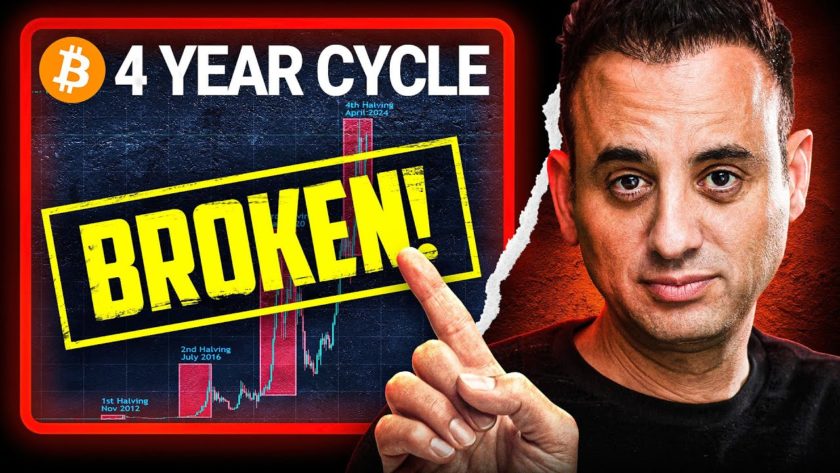Ethereum Not a Security! Has the SEC Been Co-opted?
September 10, 2018 by Paul de Havilland
Has the SEC been co-opted? The regulator’s stance toward crypto assets is nothing if not inconsistent, wavering between outright hostility to cautious accommodation. But its lack of noteworthy recent action on ICOs and its stance that ether is not–anymore–a security, might suggest that the regulator has found itself under pressure from pro-crypto investors to give the crypto ecosystem more space to grow unhindered by overbearing securities regulations.
Also see: Grocery Shopping in the Caribbean and Paying With … Bitcoin?
Subscribe to the Bitsonline YouTube channel for great videos featuring industry insiders & experts
Initial Coin Offerings Are Bad… But Lawyers Can Deal With Them
If the U.S. Securities and Exchange Commission has been consistently clear about one thing it is that ICOs pass (i.e. fail) the Howey Test and are investments made with the expectation of future returns that result from the efforts of the recipient. That is the Howey litmus test almost to the letter.
Jay Clayton told the U.S. Senate’s Committee on Banking, Housing, and Urban Affairs that all ICOs he has looked at offer securities. Yet, despite the occasional high-profile subpoena and forced closure, there has been relatively little obvious action on the SEC’s behalf to shut them down.
As @msantoriESQ points out, oranges aren’t securities (Howey test), so I’m okay with Ether not being seen as one. What pisses me off is that the people that offered ICOs (unregistered securities that offer no equity), despite it being unlawful and blatant, never had consequences.
— John Carvalho (@BitcoinErrorLog) June 14, 2018
The top securities watchdog did not take part in the highly publicized Operation Cryptosweep announced in May this year by state and provincial regulators across North America.
Perhaps startups’ refusal to sell tokens to American citizens has helped ease the pressure. So why the need for Operation Cryptosweep? Possibly, though, the SEC has decided to take a different approach.
It has been suggested that the commission is happy for token investors to engage in class action lawsuits against ICO operators if there is evidence of fraud or significant loss, thus washing its hands of the need to act preemptively to protect investors. But isn’t protecting investors central to the SEC’s job description?
Being Free Doesn’t Get You Off the Hook–Airdrops Are Securities Too
Tomahawk Exploration learned the hard way that airdropping tokens is not a viable way of avoiding securities regulators. It seems clear, then, that free or otherwise, ICO tokens are securities. That makes the SEC’s relative inaction even more baffling.
SEC expressly notes that tokens distributed via airdrop/bounty can still be securities because “…a “gift” of a security is a ‘sale’ within the meaning of the
Securities Act when the donor receives some real benefit.” Expect debate over what constitutes a “real benefit.” https://t.co/uddgQapXe6— Drew Hinkes (@propelforward) August 14, 2018
Are SAFTs a Safer Way to Go?
An alternative to the ICO fundraising mechanism, simple agreements for future tokens (SAFTs), has emerged as one way to sell securities without, well, selling securities. SAFTs are agreements to buy tokens when, and if, the platform those tokens will be used for and on are built.
On the surface, SAFTs have investor protections in place, as they incentivize ICO teams to develop working products and disincentivize those with no intention of establishing a legitimate ongoing concern.
Not so fast. The SEC doesn’t like SAFTs either. It appears, however, they are willing to tolerate them provided what startups are selling are not called tokens, and, of course, not sold to Americans. No different to the rhetoric surrounding ICOs, really.
Ethereum Is Not a Security… Anymore? Has The SEC Been Co-opted?
The SEC’s dumbfounding declaration that ether is not a security took many by surprise. Per William Hinman of the SEC:
“When we look at how Ether today is operating we see a highly decentralized network, and we don’t see a central third party.”
Given the body argues ether probably was a security when launched, the free pass for Ethereum was an extraordinary admission that startups can avoid the net of securities regulations as long as they don’t get caught too soon.
Keen SEC watcher @YangVentures suggests regulator staffers know some of the more positive of the commission’s public noises toward cryptocurrency are less than honest. And that includes positive noises about ether.
If ether is not a security in the SEC’s eyes, only two logical reasons could explain that: they didn’t get it fast enough or the body has been so weakened by its contradictory and confused stance that, absent a glaring and brazen act of fraud, startups have won the war of definitions. Or rather, the war of non-definitions.
There is a further plausible explanation. Enough hearts and minds within the SEC have been won over by the crypto community that it is happy enough to let state regulators and lawyers do its dirty work, all the while muddying the market waters with contradictory narratives.
Has the SEC been co-opted by influential crypto advocates, including the powerful Coin Center think tank? Because if it hasn’t, it has been sitting on its hands wondering about just what to do, failing to provide the markets with any clarity.
What do you think? Has the SEC been co-opted by powerful crypto groups?
Images via Pixabay




